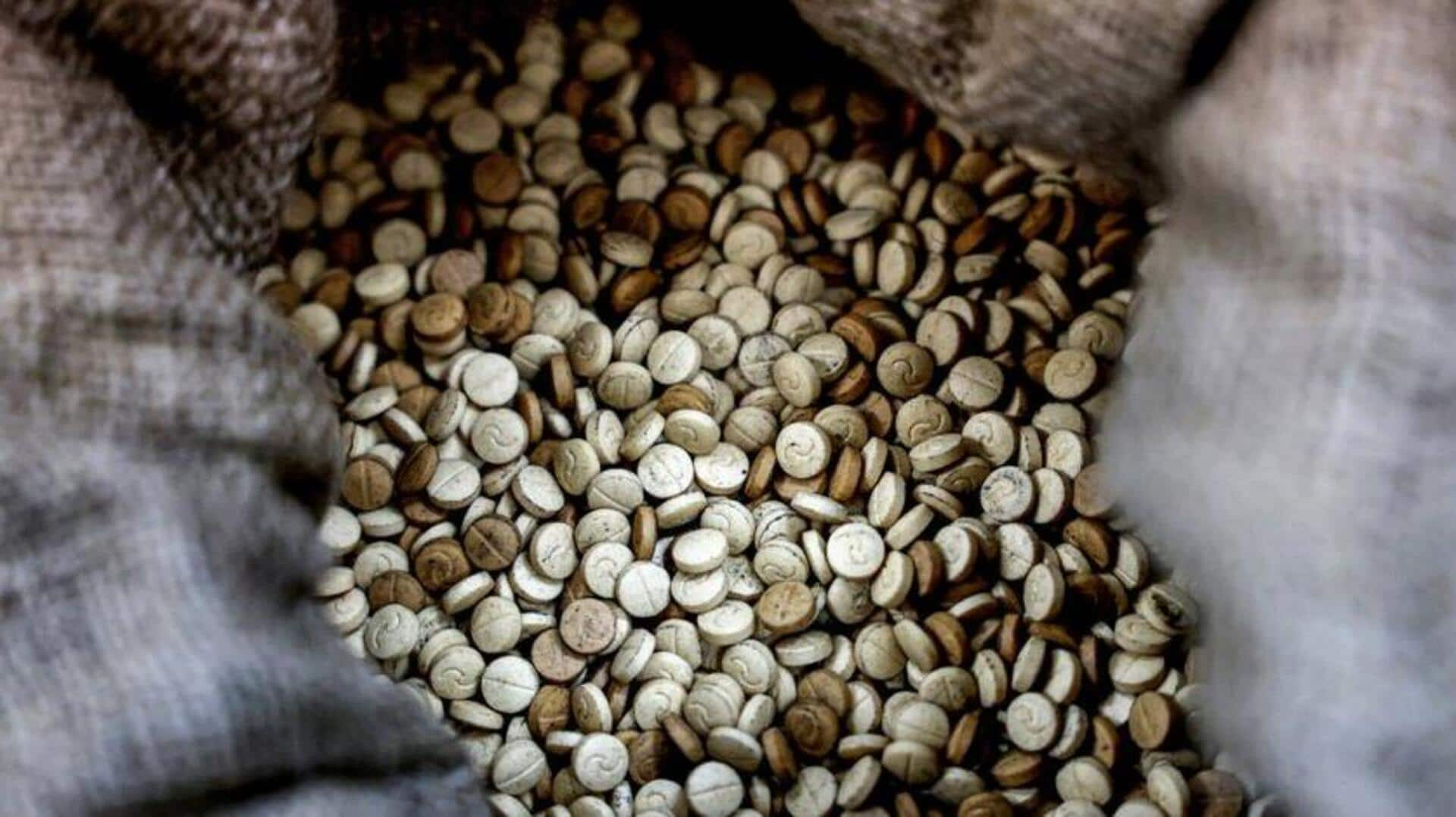
What's 'captagon,' potent drug fueling conflict, crimes across Middle East
What's the story
The captagon drug trade in the Middle East has evolved into a multibillion-dollar industry, affecting regional stability, the Wall Street Journal reported. The report noted that captagon, an "amphetamine-like drug," is widely consumed by different factions, including students, executives, and terrorists. The drug is especially popular in the Gulf states, with over a billion pills seized between 2019 and 2022. Terrorist outfits such as Hezbollah reportedly use the proceeds from this trade to fund their activities.
Explanation
What is the drug
Captagon is an addictive amphetamine-type stimulant manufactured in Syria and smuggled to the Gulf states. Captagon was the brand name for a psychoactive medication developed by the German company Degussa Pharma Gruppe in the 1960s. It was primarily given for attention deficit disorder, narcolepsy, and as a central nervous system stimulant. Captagon tablets contained fenetylline, a synthetic stimulant from the phenethylamine family that also includes amphetamine.
Profit details
Syrian regime profits from captagon trade
The global captagon market is estimated to be worth $5.7 billion, according to The New Lines Institute. This is roughly half the size of Europe's cocaine market. The Syrian Bashar al-Assad regime reportedly profited an average of $2.4 billion per year from captagon sales between 2020 and 2022. US officials fear the captagon trade could destabilize key American allies such as Jordan and Saudi Arabia.
Sanctions imposed
US sanctions individuals involved in captagon trade
In light of the escalating crisis, the US Treasury sanctioned three individuals in October for their role in captagon production and trafficking. One sanctioned individual owned a Syrian factory that reportedly shipped pills worth over $1.5 billion to Europe hidden in industrial paper rolls. The Captagon Act, signed by President Joe Biden in December 2022, details a US strategy to combat captagon trafficking by strengthening partnerships with Middle Eastern law enforcement agencies.
Border security
Jordan intensifies efforts to combat drug smuggling
Jordan has stepped up its crackdown on drug smuggling from Syria by placing nearly a third of its army along the border. Smugglers employ a range of techniques, including drones and catapults, to ferry drugs across borders as major seizures were reported in various places, including Saudi, Italy and Greece. Experts warn these networks could expand into Europe and North America. Oscar D'Agnone, medical director of the OAD Clinic in London, described captagon as "the cocaine of the Middle East."